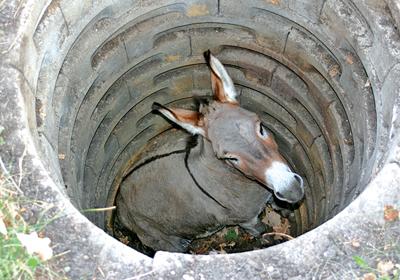Icebergs are deceptive things. You may see a small bump above the ocean surface, but beneath the surface hides a massive block of ice. Using Archimedes’ principle of buoyancy, we can calculate exactly what proportion of an iceberg lies under the surface. Pure ice has a density of about 920 kg/m³ and sea water has a density of 1025 kg/m³. Ergo, we can calculate that about 10% of the volume of an iceberg is above water. Therefore, whatever you see above the surface, there is nine times the volume hiding beneath it.
“Tip of the iceberg” is a useful metaphor in describing many things. Our base instinct is to believe what we see at first glance. We rely on first impressions, we judge books on their covers and we tend to believe headlines before reading the full text of an article.
Although this is a useful way to process massive amounts of information that we are exposed to every day, it is certainly a flawed method because not only can we miss a vast quantity of information, also easily misinterpret or misunderstand things.

Take mental health for example. Because we cannot read minds, we take clues from people’s expressions, body language and what they tell us to gauge what is happening in their minds and hearts. We are reasonably good at gauging this, so we often make assumptions based on surface information.
We might assume our friend is happy because they are smiling, or that a couple’s marriage is harmonious because of cute photos on their social media. Conversely, we might assume that a stranger is rude to us because they are terrible people.
But the smiling friend may be suffering crippling anxiety and depression. The happy-looking couple may be at the brink of divorce because of relationship problems. The rude stranger may have lost a loved one just the day before. Things are not always what they seem and it makes an incredible difference to have the insight to see past the surface.
Another lesson to learn from the tip of the iceberg is that when we encounter a problem – whether it be with another person or even within ourselves – we should ask the question of what lies beneath. The problem we notice may just be the tip, with 90% of the issues hidden from plain sight.
For example, if you feel tense and easily triggered often, perhaps it is worth looking under the hood and going on an introspective journey to discover what past experiences and traumas may have caused the insecurities. If you keep feeling victimised, attacked or sensitive, examine what story your subconscious is telling you and try to correct the narrative, being the agent of your own story.
Avoid the fate of the RMS Titanic: look beyond the visible tip of the iceberg and be aware of the entire problem. You will be surprised how it changes your perspective of the world, the people you interact with and how you feel about yourself.










